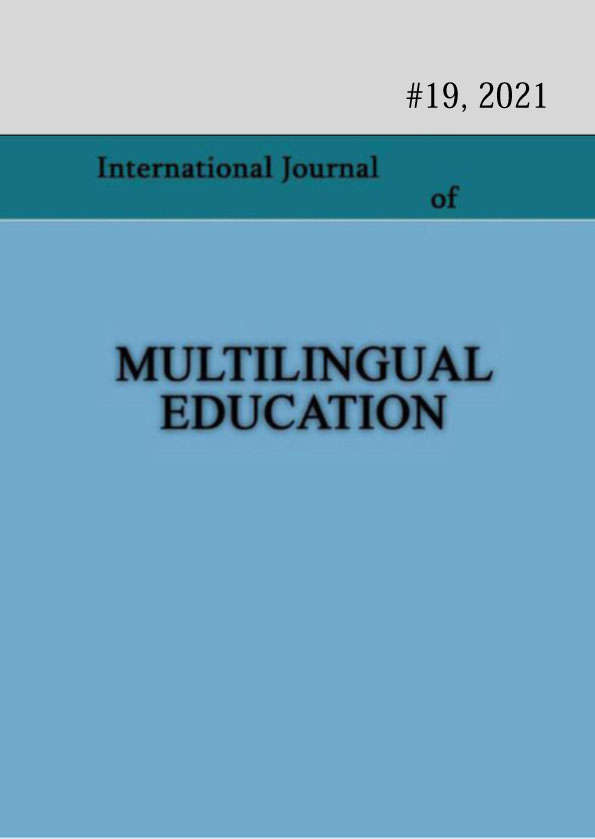Needs Analysis in English Language Teaching of Medical Students in Kazakhstan
Keywords:
needs analysis, English language teaching, university, medical students, English for specific purposes.Abstract
Teaching English at higher education institutions regardless of students’ area of specialization ignores their individual differences, needs, wishes, interests and goals. The most important and problematic question in teaching and learning is whether the course is effective or not. The effectiveness of the course is strongly related to learners’ attitudes, needs, expectations, satisfaction, and achievement. English for Specific Purposes is student-task oriented, and the basic insight into this trend is to offer course design, content and materials by being responsive to target language learners' own agenda. In this respect, the English language needs of undergraduate medical students in Kazakhstan were investigated by means of a case study conducted with the students of the Faculty of General Medicine at the West Kazakhstan Marat Ospanov Medical University. 52 students (14 males and 38 females) in their first and second year of studies participated in a quantitative survey during the spring semester of the academic year 2020-2021. A questionnaire was adapted from the previous studies in this field (Ait Hattani, 2019; Kayaoglu, Dag Akbas, 2015; Tang, Zeng, 2020), and included items on students’ attitudes towards the English course, identify their language strengths and weaknesses, and shed light on their language needs. The findings of the study will suggest practical implications for ESP course design for medical students.
References
Athanasiou et al., (2016). Athanasiou, A., Constantinou, E. K., Neophytou, M., Nicolaou, A., Sophocleous, S. P., Yerou, C. “Aligning ESP courses with the Common European Framework of Reference for Languages”: Language Learning in Higher Education, 6(2), 297-316.
Basturkmen, H. (2010). Developing courses in English for specific purposes. Basingstoke, UK: Palgrawe/Macmillan.
Ferguson, G. (2013). English for medical purposes. In Paltridge, B., Starfield, S. Chichester (eds). The Handbook of English for Specific Purposes. Chichester: Wiley-Blackwell.~
Hattani, H. (2019). Ait Hattani, H. “ESP Needs Analysis at the Moroccan University: Renewable Energy Engineering Students at EST Fes as a Case Study”: Journal of English Language Teaching and Linguistics, 4(1), 101-115.
Hutchinson, T. & Waters, A., (1987). English for specific purposes. Cambridge: Cambridge University Press. 1987.
Johns, A. M. (2013). The history of English for specific purpose research. In B. Paltridge & S. Starfield (Eds). The handbook of English for specific purposes (pp. 5-31). Chichester, West Sussex; Malden, MA: Wiley-Blackwell.
Kayaoğlu, M. N., & Dag Akbaş, R. (2015). “An Investigation into Medical Students' English Language Needs”: Participatory Educational Research (PER), Special Issue 2016-I, 63-71. 2015.
Kuzembayeva at al., (2018). Kuzembayeva, G., Karimsakova, A., Kupenova, A., „Trilingualism in Kazakhstan.” International Journal of Multilingual Education, No. 11, 87-90.
Master, P. (2005). Research in English for specific purposes. In E. Hinkel (ed.). Handbook of Research in Second Language Teaching and Learning. London: Lawrence Erlbaum Associates, 99-116.
Tang, Y. & Zeng, X., (2020). “A Study on College English Teaching of Medical Students under the Guidance of CSE – Taking Chengdu Medical College as an Example”: Advances in Social Science, Education and Humanities Research, Vol. 505, 228-232.
Published
How to Cite
Issue
Section
License
Copyright (c) 2021 Gulzhana Kuzembayeva, Banu Zhakanova

This work is licensed under a Creative Commons Attribution-NonCommercial 4.0 International License.
Copyright (c) - Authors who publish with this journal agree to the following terms: Authors retain copyright and grant the journal the right of first publication with the work simultaneously licensed under a Creative Commons Attribution-Noncommercial 4.0 International License, which allows others to share the work with an acknowledgement of the work's authorship and initial publication in this journal. Authors are permitted and encouraged to post their work online (e.g., in institutional repositories or on their personal website) prior to and during the submission process, as it can lead to productive exchanges, as well as earlier and greater citation of published work (see The Effect of Open Access). Authors may enter into separate, additional contractual arrangements for the non-exclusive distribution of the journal's published version of the work (e.g., post it to a repository or publish it in a book), with an acknowledgement of its initial publication in this journal.

